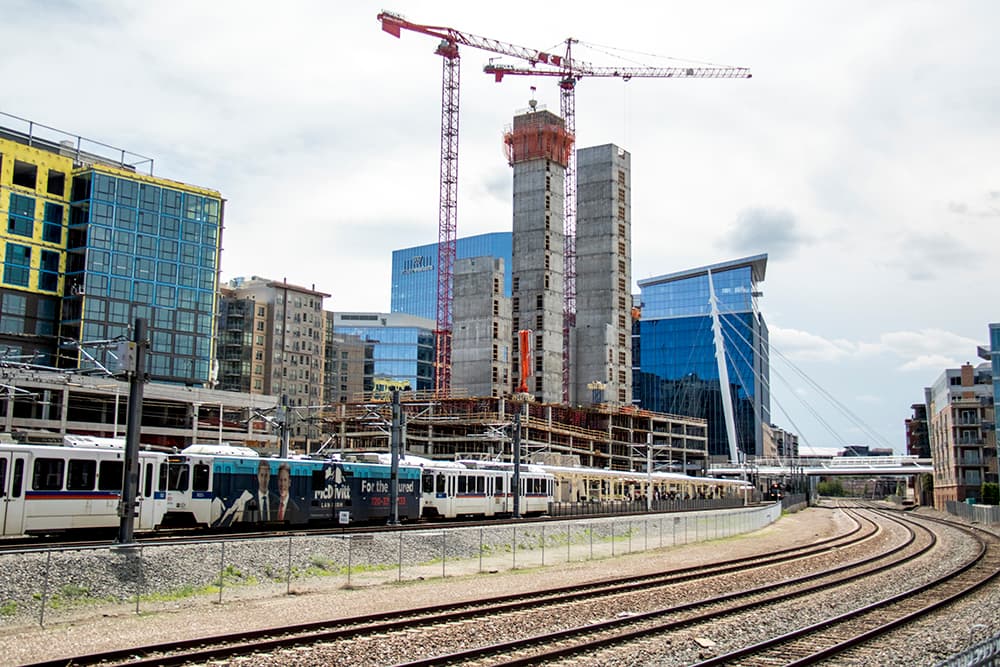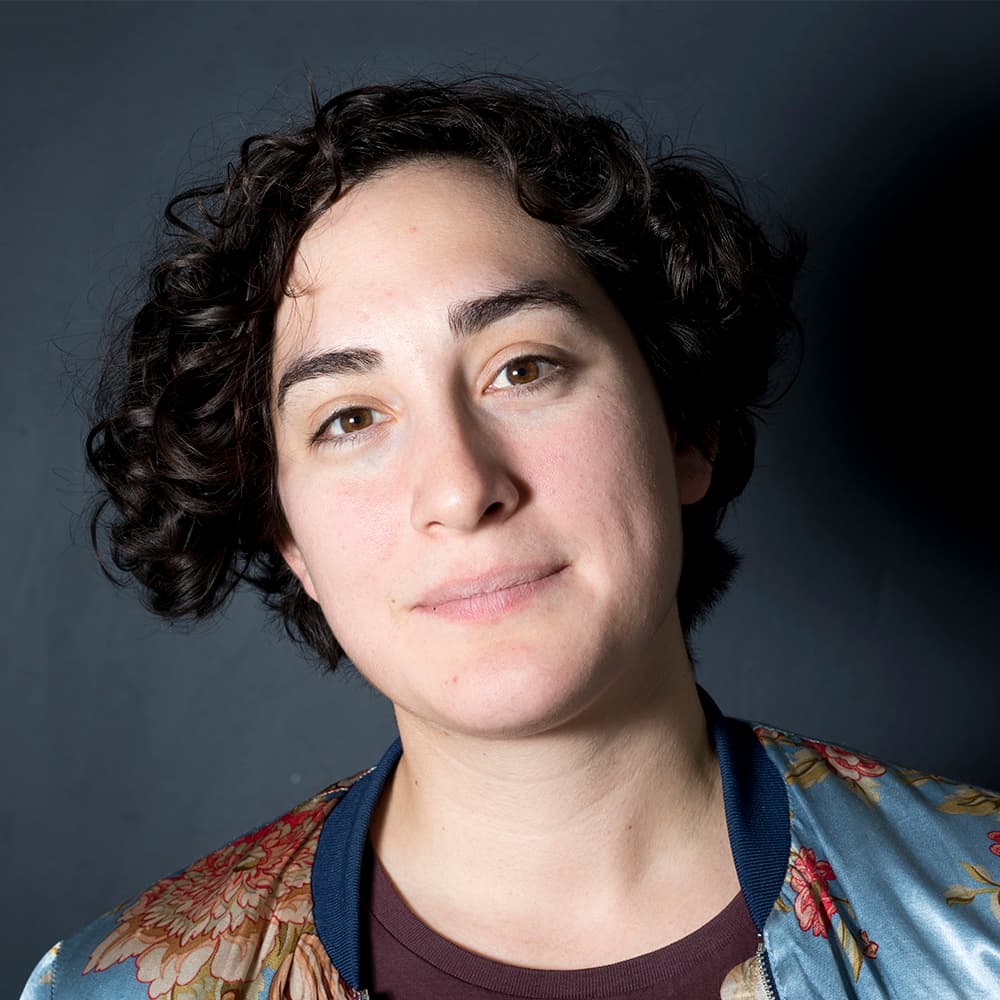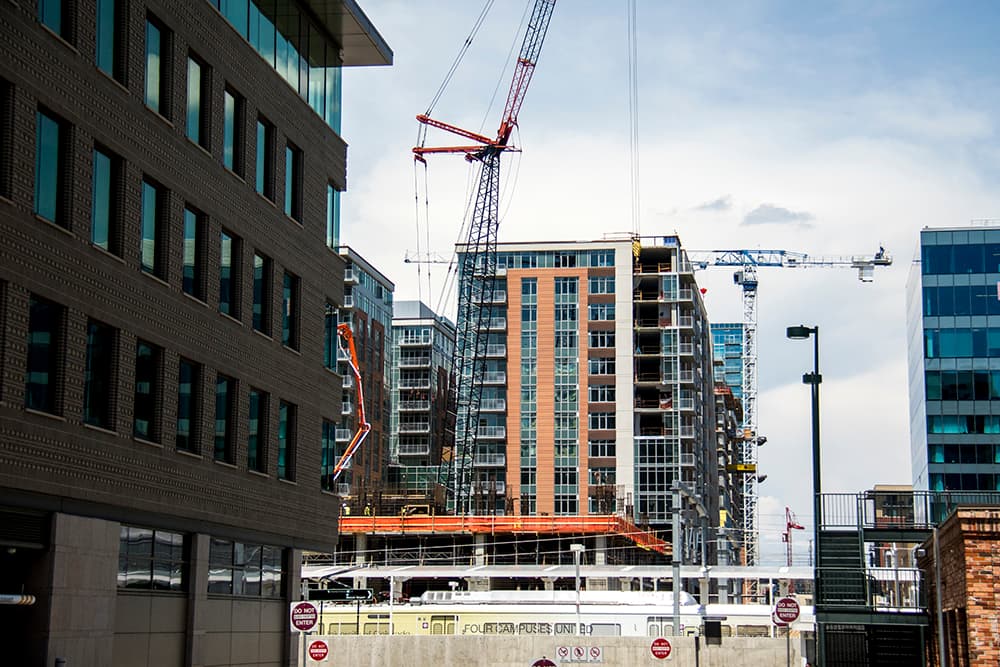
For nearly a year, landlords and business interests tried to get the city to agree to a program in which the city would subsidize rents for vacant apartments, including for higher end units.
That effort started around the time when the city of Denver was establishing its first-ever affordable housing fund, which charges apartment and condo developers a $1.50 per square foot fee on new buildings.
Nancy Burke, vice president of governmental affairs for the Apartment Association of Metro Denver, said their organization wasn't excited to learn about the fee.
"It's like, 'Well, wait a minute,' because any fee you're going to add to developers is just going to trickle down at the higher rents, and that's going to not really create what we want to create," Burke said. "And at that time, the building boom was kind of coming to a slow. At the same time it's like, 'Well what can we do?' So all these brains got together and we came up with this plan."
Burke added that the plan was not a direct response to the fee, but rather the moment that elements of a larger conversation about affordable housing happened to coalesce.
Still, others involved with the plan confirm that ideas really crystallized around the time that the impact fee was being debated. The fee was pretty unpopular among people involved in real estate development, but it ultimately passed City Council with the hope it would fuel additional investment in affordable housing. The fee, coupled with a property tax increase, aims to raise $15 million a year to build or preserve some 6,000 units of affordable housing over the next 10 years. A comprehensive housing plan will guide how that money is spent.
"OK, now we're going to have (an affordable housing fund). What are we going to do with those funds? That's when, about a year and a half ago, this idea surfaced to say, 'OK, well, here's an idea because we need to be paying attention to the working poor in our community,'" said Mike Zoellner.
Zoellner would know a thing or two about this idea that became the Lower Income Voucher Equity pilot program. He is currently a member of Downtown Denver Partnership's management group and a leader within the apartment association.
City leaders including the Mayor's Office and the Downtown Denver Partnership have noted his leadership on the LIVE pilot. (DDP president and CEO Tami Door thanked him for advocating for the LIVE program "for the last year and half" at an event this September.)
So what is this LIVE pilot anyway?
As currently envisioned, the program will take 400 vacant Denver apartments and make them affordable to households earning 40 to 80 percent of area median income. For a one-person household, that means people earning $23,520 to $47,040 a year, and for a three-person household, incomes of $30,240 to $60,480 would qualify.
The new tenants will pay affordable rents according to their income level, but apartment developments will get "reasonable market-rate" rents for their units. That's because employers like Chipotle and the city will pay money into the program to fill the gap.
Kate Waldinger, project director for the LIVE Denver program, points out that "reasonable market rents" aren't necessarily the same as the price listed online or the rents landlords originally hoped to get for the units.
"After an in-depth analysis between public and private sector partners, the 'reasonable market rate' will be offered to the participating property management companies and landlords," she said via email. That analysis will include comparisons between three comparable properties, along with other factors.
The LIVE program is designed as a two-year pilot, but there are hopes to make it into a permanent program.
The city wasn't always so keen on this idea.
During the affordable housing fund debate in the fall of 2016, the idea to have the city pay apartment owners to house lower-income tenants wasn't even catching on.
"It fell on deaf ears through the impact fee lobbying," Burke said. "We went to the (Denver Office of Economic Development), and they just weren't ready for it, and that's fine."
Denver decided to create the affordable housing fund in September 2016. The LIVE pilot program was first teased by the mayor in July 2017. What changed in that time?
Well, in January, Erik Soliván was named the first executive director of Denver's new Office of Housing and Opportunities for People Everywhere -- the Office of HOPE.
"Erik deserves a lot of credit because this was something that the apartment association and the partnership had been talking about for months, maybe a year," Zoellner said. "It's only when Erik came in and said 'Yeah I like this,' that the program received the attention that it deserved, and it's really taken off."
I asked the city why this idea was revisited after Soliván entered office. Via email, Waldinger said:
"The Denver Housing Authority and the City are co-leaders in this initiative, in close partnership with Nancy Burke and Mike Zoellner at Apartment Association and Tami Door at Downtown Denver Partnership. There have been several collaborative contributors to LIVE from the non-profit and for-profit and foundation communities. As you can imagine, launching such an initiative with so many moving pieces requires a heavy lift and an 'all hands on deck' approach. The Office of HOPE is charged with leading the housing initiatives for the City in coordination with Housing Advisory Committee, OED, DHS, the DHA to list a few agencies."
So the HOPE office picks up the ball and starts coordinating, and we end up with the LIVE pilot program.
And I want to take a moment here to say that everyone that I talked to was quick to emphasize just how important it is to have more affordable housing in Denver and how happy they were to help with that.
So why don't apartment owners just charge lower rents to fill their vacant apartments?
"You can't, from an owner's point of view, just say, 'Well, we're going to take lower rents, and we're going to start to move affordable people into our units,'" Zoellner said. "We're still trying to get the return that we thought we were going to get three years ago. In some cases, many owners are not getting that return."
Apartment owners too have felt the pinch of a hotter economy, Zoellner said. Higher insurance costs, higher health care costs, higher construction costs -- they've all made margins much thinner in the industry.
"People talk about how much rents have gone up a lot. Let me just remind you, no one talks about how much operating expenses are going up," Zoellner said. "Our property taxes in the city of Denver in our portfolio have gone up over 70 percent in the last four years."
Plus, this is not a problem of rising rents alone. Wages just haven't risen in a way that can keep up with rents.
"If it's a community-wide problem, it shouldn't be funded by any one segment of our economy," Zoellner said. "It ought to be a community-wide solution."
And with buy-in from the city and employers like Chipotle, there are contributions from a variety of sectors in the LIVE pilot. It also allows for some integration by income level among tenants.
The city itself has noted that "the highest rental housing inventory exists for the highest income levels," or in other words, the most expensive places to rent have the most vacancy. So the program has the capacity to bring lower-income renters to luxury apartments, though both Zoellner and Burke say that the LIVE pilot is something that the whole market is interested in, not just owners of luxury units.
The LIVE pilot is not actually that novel, Soliván argued.
"The federal government has been doing that for years," he said. "That’s what Section 8 is."
Here, though, Denver has more flexibility to make the program fit the local market, whereas Section 8 comes with far more restrictions.
Section 8, or the federal Housing Choice Voucher Program, gives program participants who can't afford rent a voucher that means the government will pay a portion of their rent, kind of like how the LIVE pilot plans to use city and workforce partner money to pay a portion of participants' rent.
The Section 8 program determines what "fair market rents" are in an area to decide how much money they will pay to fill the gap between an affordable rent and the actual rent, kind of like how the LIVE pilot will do an analysis to determine "reasonable market rent."
But with the LIVE pilot, Denver gets to decide a "reasonable market rent" that may be higher than "fair market rent." Section 8's fair market rent calculations are widely considered to be low, which means if you even get a voucher, you may be stuck in an undesirable neighborhood or have a hard time finding an apartment at all.
With the LIVE pilot, Denver could pay a high amount, attracting more landlords to participate, and we also may see apartment complexes contributing more desirable units.
In short, the LIVE pilot could be a more nimble application of a decades-old program.
"Owners wanted to be part of a solution," Zoellner said. "If the market was 5 percent vacant instead of 10 percent, I think owners would still want to voluntarily put some of their units into this, if you're really thinking long-term, big picture what's best for the community."
The city initially said a request for qualifications for apartment owners would be online in September. That hasn't happened yet, but officials said that they're still on track to start matching available units to individuals and families "prior to the end of the year."













